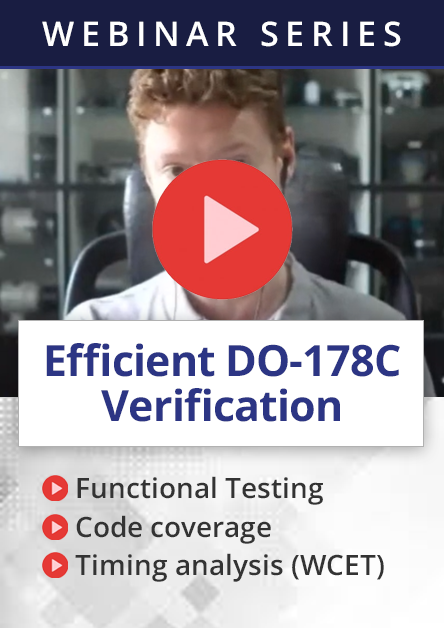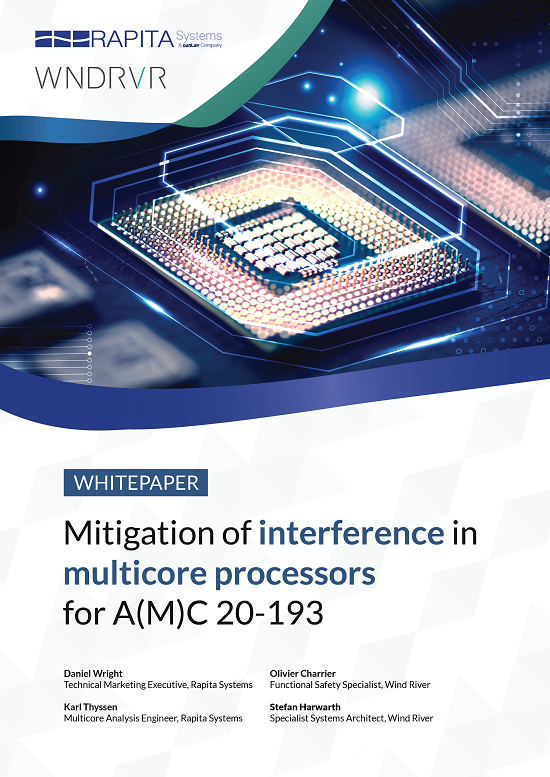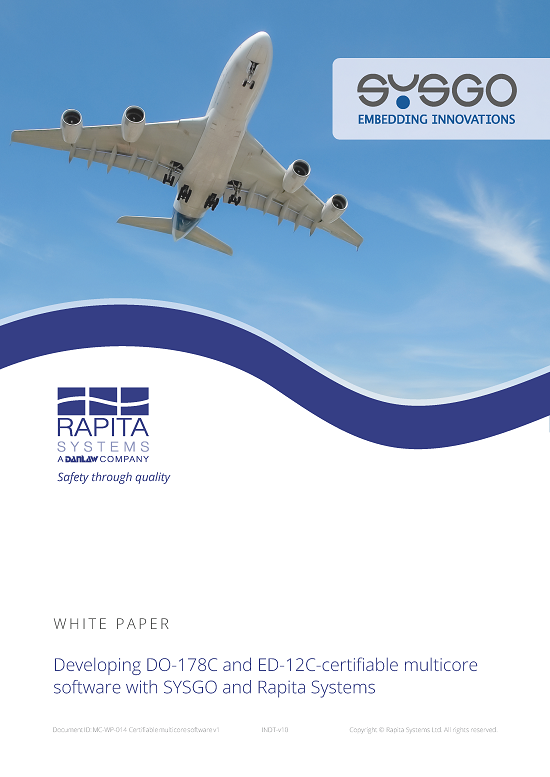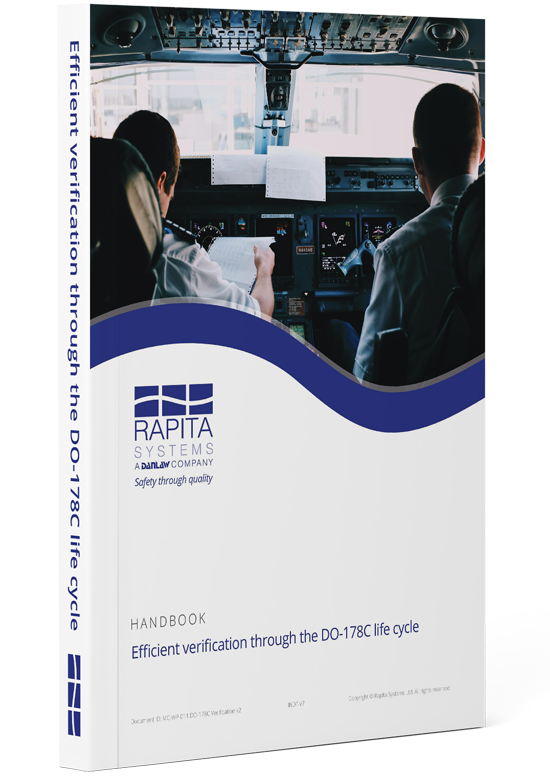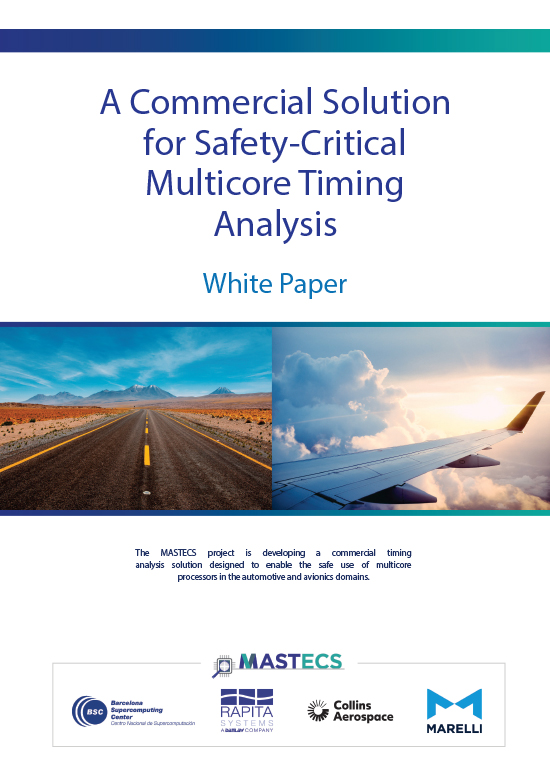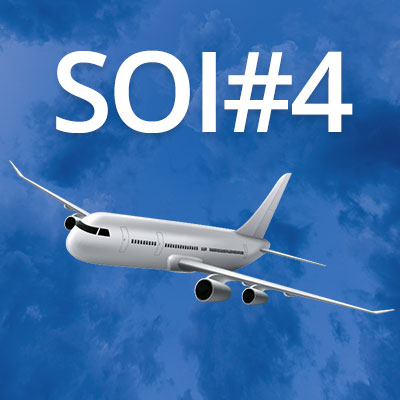DO-178C has been around for a while now, so we thought we'd recap the major differences from DO-178B that we're concerned about as a vendor of on-target analysis tools:
- The qualification supplement DO-330: this gives much more well-defined guidance on tool qualification, including the expected division of responsibilities between the tool vendor and the tool user. The presence of tool qualification levels also helps to clarify expectations. We have channeled all of these considerations into our qualification support programme.
- The formal methods supplement DO-333: this requires justification of the suitability of an analysis method. For a coverage tool like RapiCover, the method is exactly that explained in the guidance, and nothing additional is expected to be necessary. However, for an execution time tool such as RapiTime, the method is bigger than just the tool. We supply a recommended workflow to explain the ideal approach for using the tool in a certification context, and this includes justification explaining why each step is used.
The update was designed so that existing accepted approaches to compliance with DO-178B guidance would not be disrupted when viewed under DO-178C. The impact on us from other parts of the guidance is therefore minimal. For example:
- It is still clear that tool qualification is the responsibility of the tool user.
- It is still the case that qualification must be sought on each programme proposing to use the tool.
- The details of source-level coverage metrics remain the same.
- The purpose of execution time analysis remains the same.
For us, the most important outcome of the update is not the details, but the attitude. In the past, precedent generally made it very difficult to use evidence other than plain test results. Now, by allowing for formal methods and model-based development as alternative compliance mechanisms, DO-178C and its supplements pave the way for wider variations in means of compliance. If this trend continues, perhaps these and other compliance mechanisms will at last see wider adoption in critical sectors - particularly aerospace and automotive - and really give tool users the confidence to consider newer, more effective analysis and development tools.
If you want to learn more about DO-178C compliance, why not attend one of our specialized training events? We run these practical sessions throughout the year to share our experience in the challenges of DO-178C compliance and highlight the optimal paths to achieve it. We run these together with our partner ConsuNova, a leading global provider of DO-178C training, certification and compliance solutions.

 Rapita System Announces New Distribution Partnership with COONTEC
Rapita System Announces New Distribution Partnership with COONTEC
 Rapita partners with Asterios Technologies to deliver solutions in multicore certification
Rapita partners with Asterios Technologies to deliver solutions in multicore certification
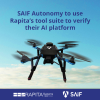 SAIF Autonomy to use RVS to verify their groundbreaking AI platform
SAIF Autonomy to use RVS to verify their groundbreaking AI platform
 RVS gets a new timing analysis engine
RVS gets a new timing analysis engine
 How to measure stack usage through stack painting with RapiTest
How to measure stack usage through stack painting with RapiTest
 What does AMACC Rev B mean for multicore certification?
What does AMACC Rev B mean for multicore certification?
 How emulation can reduce avionics verification costs: Sim68020
How emulation can reduce avionics verification costs: Sim68020
 How to achieve multicore DO-178C certification with Rapita Systems
How to achieve multicore DO-178C certification with Rapita Systems
 How to achieve DO-178C certification with Rapita Systems
How to achieve DO-178C certification with Rapita Systems
 Certifying Unmanned Aircraft Systems
Certifying Unmanned Aircraft Systems
 DO-278A Guidance: Introduction to RTCA DO-278 approval
DO-278A Guidance: Introduction to RTCA DO-278 approval
 Avionics Certification Q&A: CERT TALK (with Consunova and Visure)
Avionics Certification Q&A: CERT TALK (with Consunova and Visure)










